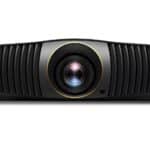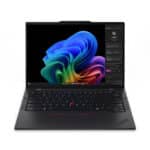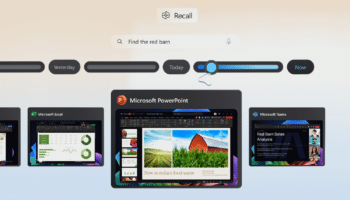Sonos Ace: The headphones of your dreams are now a reality

Sonos has announced the launch of its first-ever headphones, the Sonos Ace. Known for its developments in sound technology, Sonos is now expanding its audio expertise to headphones. Sonos fans are surely quite excited to finally have headphones from the company, as this has been a long-awaited addition to its product lineup.
The Sonos Ace is an over-the-ear Bluetooth headphone featuring lossless and spatial audio, Active Noise Cancellation (ANC), and Aware Mode. The headphones also offer a home theater experience with Sonos’ new TrueCinema technology.
How a curious, learning-oriented culture promotes innovation

Technology companies are experiencing tremendous challenges on several fronts. On the one hand, emerging technologies like Generative AI (Gen AI) are opening up new possibilities for revenue and growth. On the other, a tight labor market in general and an even tighter IT labor market means companies can’t just “buy” talent -- they’ve got to “build” it as well.
Encouraging creativity can reap significant rewards for businesses. People can think more deeply and freely about problem-solving and develop creative solutions by sparking curiosity. Research has shown that greater creativity can result in fewer decision-making errors, more innovation, reduced group conflict, more open communication and sharing of information, and better team performance.
Harnessing generative AI to create a new breed of supercharged lawyers and law firms

Traditionally the legal sector has lagged behind other industries when it comes to embracing new technologies. However, generative AI is proving to be the exception to the rule. Its potential to transform the profession, driving lawyers and firms to unlock new levels of productivity and efficiency, is too great to be ignored.
Growing numbers of law firms are putting their money where their mouths are, with global spending on legal AI software tools at already over $1 billion and projected to increase by almost 20 percent (CAGR) every year across the rest of the decade, reaching an estimated $37bn by the end of 2024. There’s a huge societal and industry shift underway; lawyers and law firms must act now, or risk being left behind.
Priorities for data center OT security in the cloud era

The decentralized nature of the cloud provides great flexibility for users, but it also introduces great vulnerabilities for data center operators. As an abundant source of valuable data, the modern data center has become a prime target for cybercriminals, from small business facilities to the huge hyperscale colocation data centers run by Amazon, Google, and Microsoft.
Protecting these interconnected facilities and the hardware and software systems that they physically host provides a perpetual job for security teams. But it’s important to recognize the clear distinction between securing information technology (IT) inside a data center facility, versus securing the operational technology (OT), or what’s called “cyber-physical systems” needed to run the facility itself. IT and OT involve two complementary but distinct categories of security and risk.
AI adoption poses risks to corporate data

The amount of corporate data workers put into AI tools increased 485 percent from March 2023 to March 2024, and is increasing exponentially. The trend is highest among tech workers with 23.6 percent putting corporate data into an AI tool.
A new report from Cyberhaven looks at AI adoption trends and their link to heightened risk. A worrying finding is that 73.8 percent of ChatGPT usage at work is through non-corporate accounts, that unlike enterprise versions incorporate whatever you share in public models.
77 percent of organizations suffer cyberattacks due to identity issues

According to a new survey, 77 percent of organizations have suffered from instances of cyberattacks or data breaches in the past 12 months due to improper access or over-privileged users.
The study from ConductorOne, based on a survey of 523 US-based IT security leaders at companies with 250 to 10,000 employees, also finds 41 percent of respondents say there had been multiple instances of cyberattacks or data breaches due to the same improper access issues.
Only 60 percent of brands can protect their customers from digital impersonation

More than half of respondents (53 percent) to a new survey say their existing cybersecurity solutions do not effectively address website impersonation attacks, and 41 percent say their existing solutions only partially protect them and their customers.
The study from Memcyco, based on research from Global Surveyz, finds just six percent of brands claim to have a solution that effectively addresses these attacks despite 87 percent of companies recognizing website impersonation as a major issue and 69 percent admitting to having had these attacks carried out against their own website.
Chatbots can be tricked into revealing company secrets

A new Dark Side of GenAI report from Immersive Labs looks at 'prompt injection' attacks, in which individuals input specific instructions to trick chatbots into revealing sensitive information, potentially exposing organizations to data leaks.
Using data gathered from a public prompt injection challenge the report finds a worrying 88 percent of participants successfully tricked the GenAI bot into giving away sensitive information in at least one level of an increasingly difficult challenge.
Zero-day vulnerabilities see increased targeting by cybercriminals

Last year saw more mass compromise events arising from zero-day vulnerabilities (53 percent) than from older vulnerabilities for the first time since 2021.
The latest Attack Intelligence Report from Rapid7 also shows mass compromise events stemming from exploitation of network edge devices have almost doubled since the start of 2023, with 36 percent of widely exploited vulnerabilities occurring in network perimeter technologies. More than 60 percent of the vulnerabilities Rapid7 analyzed in network and security appliances in 2023 were exploited as zero-days.
New Recall tool could be Microsoft's best use of AI in Windows 11 yet -- and its most private

Microsoft Build kicks off today but -- as is usually the case -- there have been various pre-event announcements, not least of which is the unveiling of AI-powered Copilot+ PCs. The hardware side of things is both powerful and exciting, with huge implications for not only computing capabilities, but also privacy.
This new breed of computers features neural processing units (NPU) meaning AI-tasks can be performed on-device, without the need to transmit data via the internet. One of Microsoft’s first tools to take advantage of this is Recall (once known as AI Explorer) which is an astonishingly powerful workflow tool that records and maintains a timeline of your computing activities and gives you a way to instantly locate content you have been working on. Microsoft describes it as like having a photographic memory, but it is perhaps better thought of as the ultimate productivity assistant.
Microsoft unveils Surface Laptop 7th Edition and Surface Pro 11th Edition Copilot+ PCs running Windows 11

Microsoft has introduced two new Copilot+ PCs, the Surface Laptop 7th Edition and Surface Pro 11th Edition, designed primarily for business customers. Equipped with Snapdragon X Elite and Plus processors and running Windows 11 Pro, these devices promise faster performance and improved AI capabilities compared to the MacBook Air. The new Copilot+ PCs feature integrated NPUs, offering AI-driven tools like Recall, Live Captions with Translations, and Windows Studio Effects, which streamline daily tasks and improve collaboration.
The Surface Laptop 7th Edition offers impressive features such as brighter displays with thin bezels, enhanced connectivity with Wi-Fi 7, up to 22 hours of battery life, and multiple port options. Available in 13.8” and 15” sizes, it combines visual clarity with portability. The Surface Studio Camera and AI-powered Windows Studio Effects ensure clear and confident video calls, while the Omnisonic Speakers and AI-enhanced Studio Mics improve audio quality.
BenQ launches W5800 4K home theater projector with HDR-Pro for $5,999

BenQ has launched its latest 4K home theater projector, the W5800. This new model showcases BenQ's exclusive CinematicColor and advanced HDR-Pro technology, providing a true 4K UHD experience with 8.3 million pixels. It stands out as the only 4K home cinema projector to achieve 100% DCI-P3 color accuracy, making it an essential upgrade for home theater enthusiasts.
The W5800 comes with individual factory calibration reports that ensure 100% Rec. 709 Delta E<2 and optimized DCI-P3 color table, delivering true Hollywood colors. The projector's HDR-Pro technology enhances dynamic contrast, featuring Blue Laser Dimming and Dynamic Black Technology to improve light and dark scenes in HDR mode. The Local Contrast Enhancer adjusts gamma for each scene, while HDR10+ technology optimizes each frame with dynamic metadata.
Lenovo reveals AI-powered Yoga Slim 7x and ThinkPad T14s Gen 6 Windows 11 Copilot+ PCs with Snapdragon X Elite

Today, Lenovo announces the Lenovo Yoga Slim 7x and Lenovo ThinkPad T14s Gen 6, marking the debut of its next-generation AI PCs powered by the Snapdragon X Elite processor. As the PC industry transitions into the artificial intelligence era, Lenovo aims to redefine personalization in personal computing with these new offerings. These NGAIPCs combine intelligent software-powered local processing, increased productivity, creativity, and security to deliver an enhanced user experience.
The Yoga Slim 7x and ThinkPad T14s Gen 6 are equipped with Qualcomm Technologies’ new Snapdragon X Elite processor, which features the 12-core Qualcomm Oryon CPU, Qualcomm Adreno GPU, and a dedicated Qualcomm Hexagon NPU (neural processing unit). This combination promises leading PC performance per watt and up to 45 trillion operations per second (TOPS) in AI NPU processing. Users can now access Large Language Model (LLM) capabilities even offline, enhancing productivity and creativity without relying on an internet connection.
Acer unveils Swift 14 AI Windows 11 Copilot+ PC powered by Snapdragon

Acer has launched its first Copilot+ PC, the Swift 14 AI laptop, marking a new era of AI-enhanced computing. Encased in a thin-and-light aluminum chassis, the Swift 14 AI features optimized AI capabilities for productivity and mobility.
The laptop is powered by Snapdragon X Series platforms, featuring an integrated NPU capable of 45 Trillions of Operations Per Second (TOPS). This supercharges the Swift 14 AI to deliver a significant leap in performance, all-day battery life, and advanced AI experiences. Running on Windows 11, the Swift 14 AI supports next-generation AI features including Recall, Cocreator, Live Captions, new Windows Studio Effects, and Auto Super Resolution.
"The most significant change to the Windows platform in decades"-- Microsoft announces Copilot+ PCs

At a pre-Build event today, Microsoft revealed its plans for the future of its Copilot AI feature. Copilot+ PCs, coming from Microsoft and a number of hardware partners, are described as the fastest, most advanced AI-driven Windows computers yet. In fact, Microsoft touts Copilot+ as "most significant change to the Windows platform in decades," and says the new PCs embrace AI technology in every aspect, from the ground up.
The devices, developed in partnership with Acer, ASUS, Dell, HP, Lenovo, and Samsung, are equipped with new silicon capable of performing over 40 trillion operations per second. These PCs offer extended battery life and access to cutting-edge AI technologies.
Most Commented Stories
© 1998-2024 BetaNews, Inc. All Rights Reserved. Privacy Policy - Cookie Policy.




